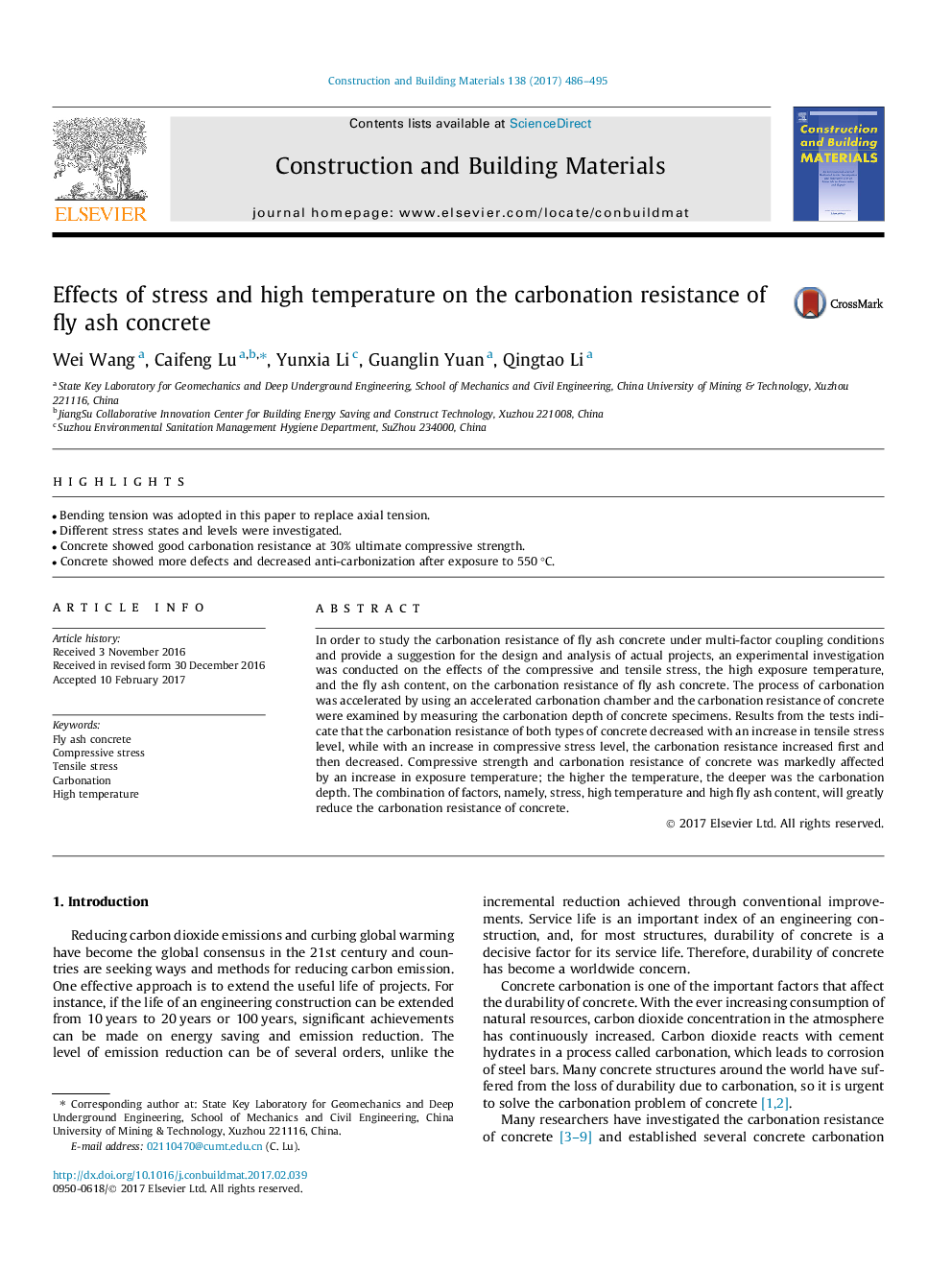| Article ID | Journal | Published Year | Pages | File Type |
|---|---|---|---|---|
| 4913738 | Construction and Building Materials | 2017 | 10 Pages |
Abstract
In order to study the carbonation resistance of fly ash concrete under multi-factor coupling conditions and provide a suggestion for the design and analysis of actual projects, an experimental investigation was conducted on the effects of the compressive and tensile stress, the high exposure temperature, and the fly ash content, on the carbonation resistance of fly ash concrete. The process of carbonation was accelerated by using an accelerated carbonation chamber and the carbonation resistance of concrete were examined by measuring the carbonation depth of concrete specimens. Results from the tests indicate that the carbonation resistance of both types of concrete decreased with an increase in tensile stress level, while with an increase in compressive stress level, the carbonation resistance increased first and then decreased. Compressive strength and carbonation resistance of concrete was markedly affected by an increase in exposure temperature; the higher the temperature, the deeper was the carbonation depth. The combination of factors, namely, stress, high temperature and high fly ash content, will greatly reduce the carbonation resistance of concrete.
Related Topics
Physical Sciences and Engineering
Engineering
Civil and Structural Engineering
Authors
Wei Wang, Caifeng Lu, Yunxia Li, Guanglin Yuan, Qingtao Li,
